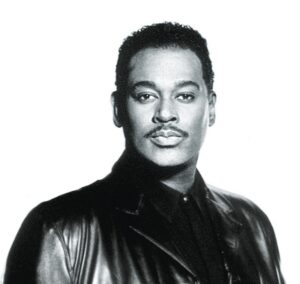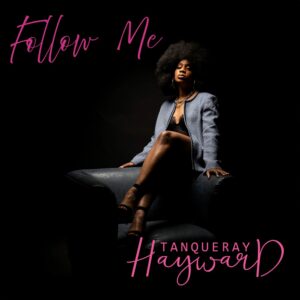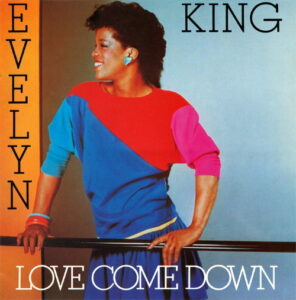(2013) If the last two years in contemporary British soul pop were defined by Adele, and the years before, Amy Winehouse, then 2013 may be defined by the unique originality of UK songbird, Laura Mvula. Unlike the previously mentioned divettes, there has never been anything in pop music like Laura Mvula. No soul references to icons of the 60s or 70s, no chords borrowed from Marvin or Curtis, no 80s synth funk. Nothing. Period. I dare you to find a reference from Motown, Stax or Philly International Records; maybe Chess in the early classical meets soul productions of Charles Stepney for The Dells, Minnie Ripperton, and the Rotary Connection…maybe. That Mvula says her influences are Jill Scott, Lauryn Hill, and Erykah Badu is almost like Babyface saying he was trying to sound like Stevie Wonder when he first came out; good luck trying to hear it in the material. It is going to be for this reason that what is likely the best album 2013 will ever produce will also likely be among the most polarizing between fans who want soul to keep an ever steady glance backwards and those who are eager to enter the next unknown frontier of R&B and soul. Laura Mvula may be the one who mothers us into that next frontier.
There is church in Laura Mvula, but not the church of Walter Hawkins, The Clark Sisters, or even Kirk Franklin and Richard Smallwood. With nary a First Sunday run or riff to be found, Mvula’s church jumps back a century and revives the negro spiritual without the operatic, classical voice. The hymnal “Father, Father” could stand tall at a Cathedral recital, with Mvula finding high, honest spaces in her plaintive, straight-forward alto that get joined by an ever growing chorus unlike any you’ve ever heard, begging to give love. On the xylophone illuminated “Green Gardens” the African is restored in the spiritual with driving polyrhythms, choral harmonies, and layers of counterpoint in a song that is both rigorously structured and yet gloriously free. As its infectious video of joyous movement demonstrates, it even has the nerve to be commercially appealing despite all of its astutely done, high-brow composition to boot. She repeats this feat on the brassy jazz of the monumental “Make Me Lovely” which finds soft spaces in English-sung Chinese opera motifs before repeatedly exploding into a percussive march that ultimately melts into a soothing choral tide washing back into the ocean. “That’s Alright” is all tribal percussion thump and Middle Passage moans before blowing bright with the blare of clarion horns, brownstone stoop sass, and a cheeky choral rebuke of “who made you the center of my universe?” These are triumphs of classical training and African call and response, the collision of African and Western backgrounds in the artistic mind, and an unfailing ear for something approaching pop appeal without once selling out the uniqueness of these creatives’ vision. To say that Mvula is bold and daring in the way that Bjork and Annie Lennox were in their time is not hyperbole. It’s the gospel truth.
Raised in the Birmingham of England, rather than Alabama, Mvula’s training was in both classical and jazz, formally at the Birmingham Conservatoire where she studied. Informally, the 25-year old Mvula honed her talent for a cappella arrangement with a girl group called Black Voices and later with the Lichfield Community Gospel Choir. Like Minnie Ripperton and Charles Stepney classical soul pop arrangements for Ripperton’s iconic debut, Come To My Garden, there is a floral theatricality to Mvula’s productions with collaborator Steve Brown of Rumer fame. There are lots of open spaces in these oft-avant-garde structured songs from which emerges the harp, celeste, double bass, and rivers of gossamer strings; they ebb and flow without rhyme or reason, much like the choral harmonies which moan or piercingly cry to the heavens before evaporating into Mvula and Brown’s sunshine spaces. So stage-ready is Mvula’s work that much ofSing to the Moon would not feel entirely out of place as the experimental music for modern dance at the Joffrey Ballet or Alvin Ailey. Even in these songs’ silences there is movement.
There is also a bracing spirituality in the recordings’ minimalist moments. Against a simple harp, Mvula’s take on Stevie Wonder’s “Something Out of the Blue,” from his underrated experiment, Where I’m Coming From, does not attempt to emulate Stevie’s voice, only the wonder in that song’s message, one that could be either secular or spiritual. The xylophone chimes of “She” supporting the solitary voice singing a blues story of cyclical destruction is met with a chorus of cries before an overlay of “She don’t stop” chants until Mvula reveals the possibility of hope and spirit with “you don’t stop/you belong to me” before the fallen woman determines “maybe its too late for me” and returns to the cycle of self-destruction dogging her days. There is a compassion for another frustrated woman who wonders if “sometimes the grass isn’t greener on the other side/maybe the sky is clearer in another place” in a song that reads like a caressing lullaby providing that woman “dancing in a gloomy store” comfort.
The escapist daydreams of “Can’t Live With The World” and the experimental troubadour melody of “I Don’t Know What The Weather Will Be” are not going to be every soul and R&B fan’s cup of tea, or many a pop fan for that matter. There is little traditional to be found here. What reads as one person’s future soul reads as another person’s artsy self-indulgence and there may be an argument to be made for Mvula and Brown’s hubris. But, for this reviewer, there is an ambitiousness and intentionality to these unusual proceedings that make for something worth paying attention to here. They dare to remind listeners that pop music once strove to be art, one that inspired consideration and awe. We’ve lost a lot of that in the industry’s efforts to just nab a here today, gone tomorrow hit single. If nothing else, there are moments like “Like The Morning Dew” and “Green Gardens” that just feel good, whatever their conceits. And sometimes, that’s enough. Highly recommended.
By L. Michael Gipson










